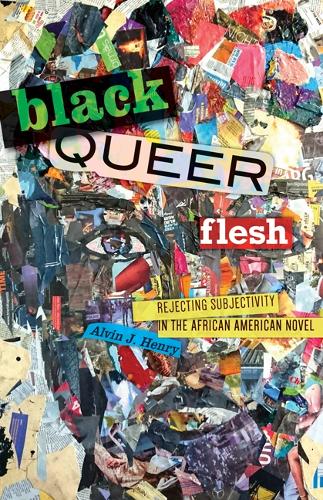
Black Queer Flesh: Rejecting Subjectivity in the African American Novel
(Hardback)
Available Formats
Publishing Details
Black Queer Flesh: Rejecting Subjectivity in the African American Novel
By (Author) Alvin J. Henry
University of Minnesota Press
University of Minnesota Press
16th March 2021
United States
Classifications
General
Non Fiction
Social discrimination and social justice
Ethnic groups and multicultural studies
813.509896073
Physical Properties
Hardback
264
Width 140mm, Height 216mm, Spine 38mm
Description
A groundbreaking examination of how twentieth-century African American writers use queer characters to challenge and ultimately reject subjectivity
Black Queer Flesh reinterprets key African American novels from the Harlem Renaissance to Black Modernism to contemporary literature, showing how authors have imagined a new model of black queer selfhood. African American authors blame liberal humanisms model of subjectivity for double consciousness and find that liberal humanisms celebration of individual autonomy and agency is a way of disciplining Black queer lives. These authors thus reject subjectivity in search of a new mode of the self that Alvin J. Henry names black queer flesha model of selfhood that is collective, plural, fluctuating, and deeply connected to the black queer past.
Henry begins with early twentieth-century authors such as Jessie Redmon Fauset and James Weldon Johnson. These authors adapted the Bildungsroman, the novel of self-formation, to show African Americans gaining freedom and agency by becoming a liberal, autonomous subjects. These authors, however, discovered that the promise of liberal autonomy held out by the Bildungsroman was yet another tool of antiblack racism. As a result, they tentatively experimented with repurposing the Bildungsroman to throw off subjectivity and its attendant double consciousness. In contrast, Nella Larsen, Henry shows, was the first author to fully reject subjectivity. In Quicksand and Passing, Larsen invented a new genre showing her queer characterscharacters whose queerness already positioned them on the margins of subjectivityescaping subjectivity altogether. Using Ralph Ellisons archival drafts, Henry then powerfully rereads Invisible Man, revealing that the protagonist as a queer, disabled character taught by the novels many other queer, disabled characters to likewise seek a selfhood beyond subjectivity. Although Larsen and Ellison sketch glimpses of this selfhood beyond subjectivity, only Saidiya Hartmans Wayward Lives, Beautiful Experiments shows a protagonist fully inhabiting black queer flesha new mode of selfhood that is collective, plural, always evolving, and no longer alienated from the black past.
Black Queer Flesh is an original and necessary contribution to black literary studies, offering new ways to understand and appreciate the canonical texts and far more.
Reviews
"Alvin J. Henrys Black Queer Flesh makes not only a significant and needed contribution to Black literary studies, but indeed will transform twentieth-century African American criticism and theory. His critical articulation of Black queer flesh shaped by theories of Black self-abnegation offers a critical approach that makes it possible to rethink the Black queer self in key literary texts."Gary Edward Holcomb, author of Claude McKay, Code Name Sasha: Queer Black Marxism and the Harlem Renaissance
"Alvin J. Henrys lush theorization of Black queer flesh is a mode of being, a performance of the self outside of subjectivity that highlights how the anxieties and violence of racialization manifest. This is a study in negative sensation. Black Queer Flesh digests these moments of raw embodiment so as to remake intimacy, being, and the very nature of the novel itself."Amber Jamilla Musser, author of Sensational Flesh: Race, Power, and Masochism
Author Bio
Alvin J. Henry is assistant professor of English at St. Lawrence University in New York. He is editor of Psychoanalysis in Context.
